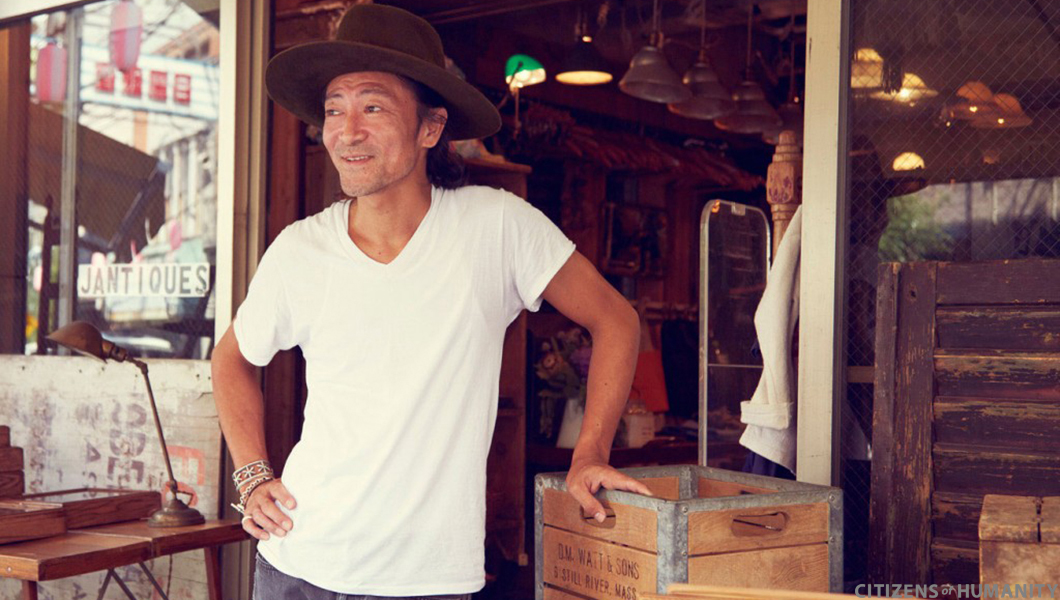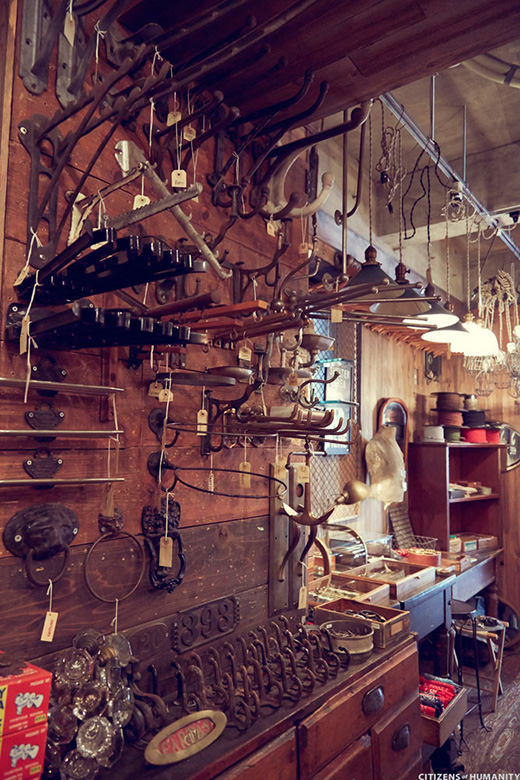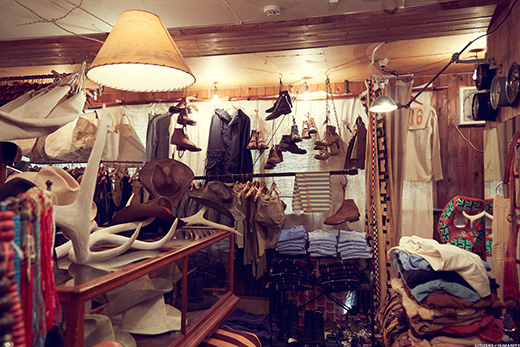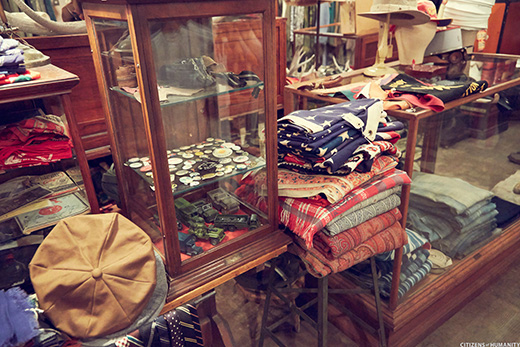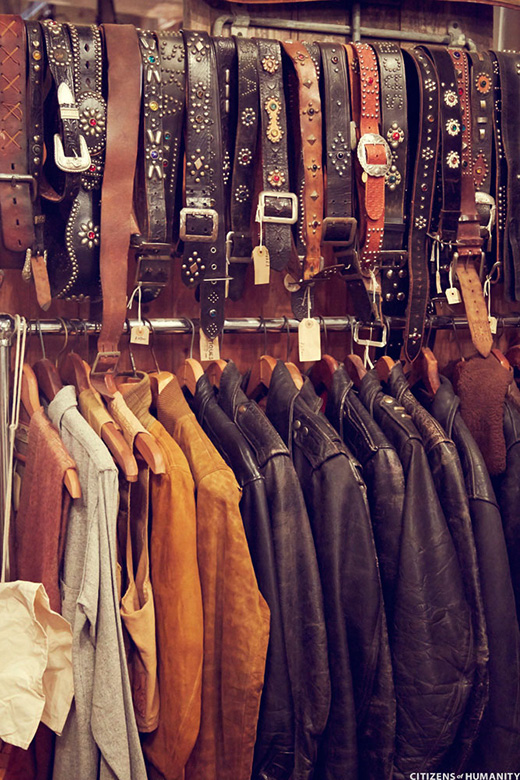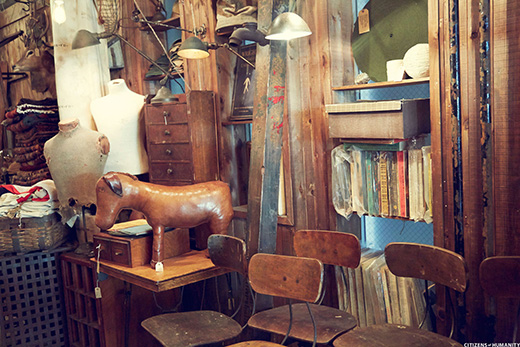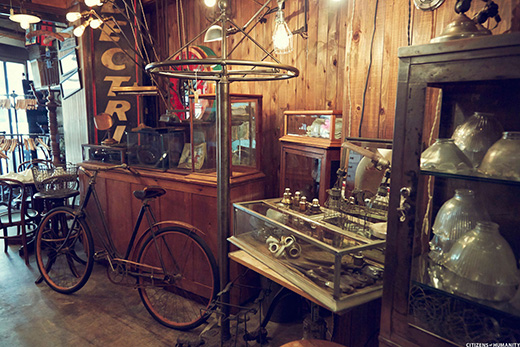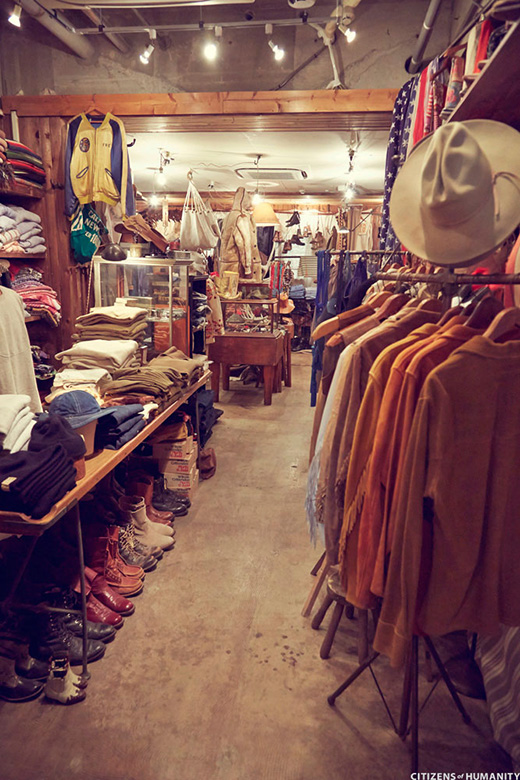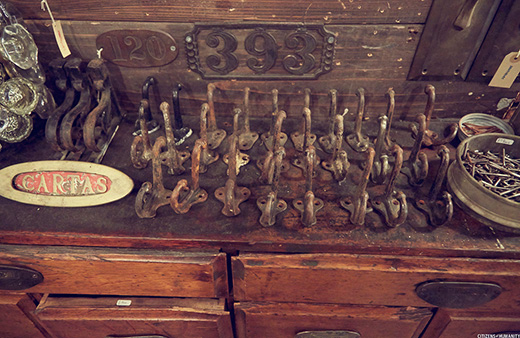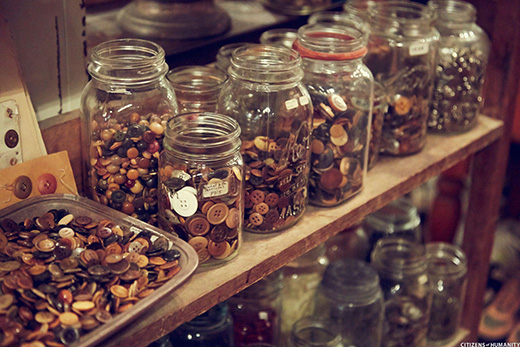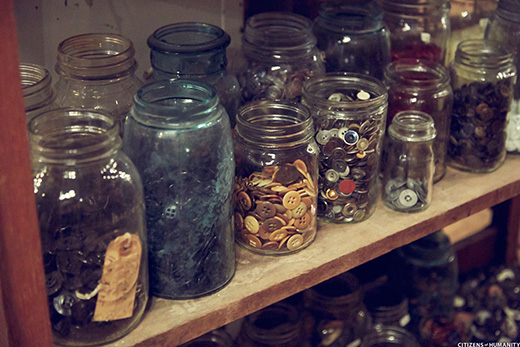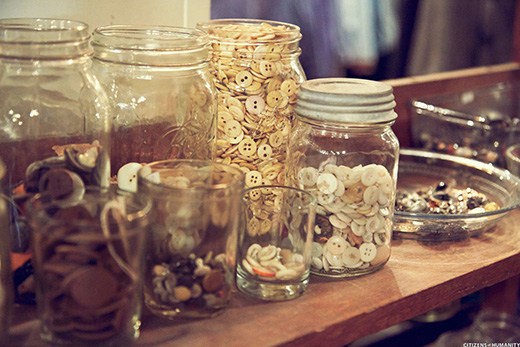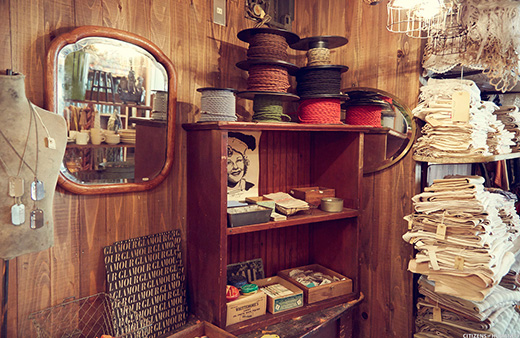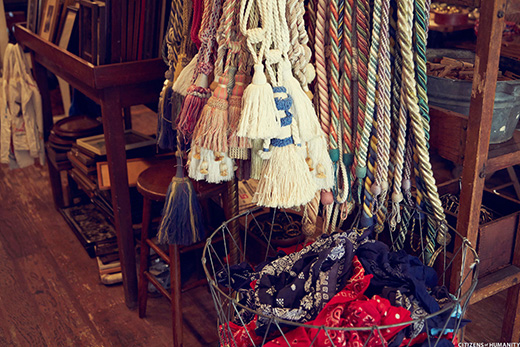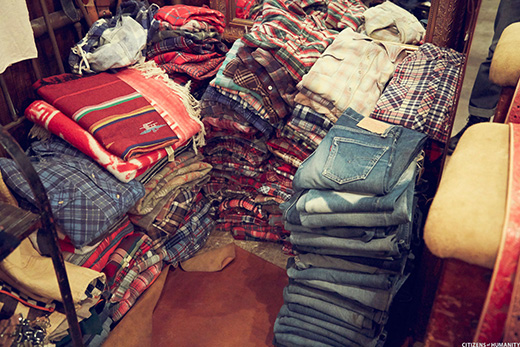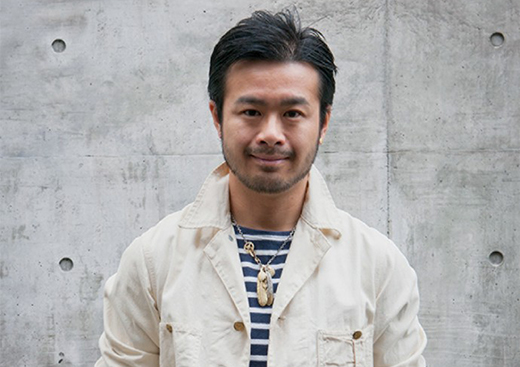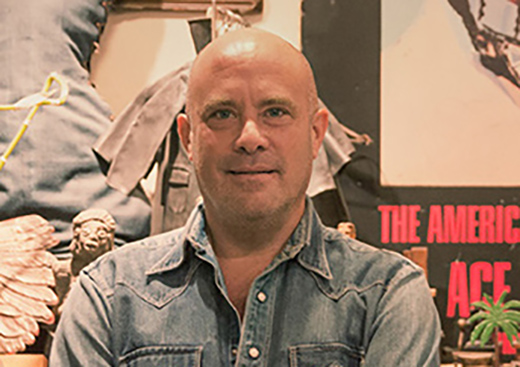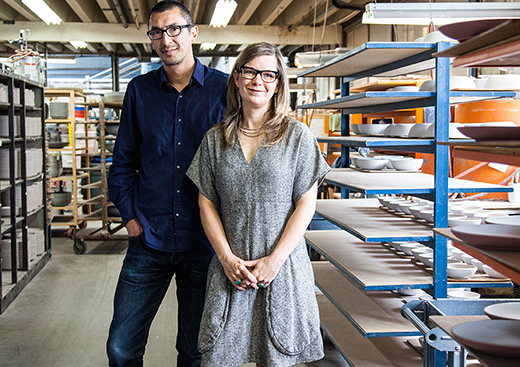It’s been called “the best vintage store in the world,” but owner Hitoshi Uchida opened his Tokyo-based shop J’Antiques in 2005 without thinking much about its future. “I happened to find a property for sale in my neighborhood,” he says. “So I started my store without preparing much.” located near the Nakameguro neighborhood, J’Antiques’ shelves and aisles are packed with classic men’s and women’s wear (focusing on authentic American work wear from the 1920s and beyond) as well as bric-a-brac like vintage buttons, antique keys, and WWII-era military gear. His pieces are humble yet beautifully crafted; relics from the days when the U.S. was really celebrated for creating carefully crafted clothing that was built to last.
Becoming a master at sourcing and selling artifacts like these was a natural extension of Uchida’s personal passion for unique style. “I was looking for clothing that was different from other people’s,” he explains, “That’s what first led me to vintage.” Growing up in Gunma, a mountainous area north of Tokyo, Uchida considered becoming an architect. But his love for fashion and its history drew him to career clothing. Once he’d secured the location for his shop, the name for J’Antiques was a natural fit. “It’s a combination of ‘junk’ and ‘antique,’” Uchida explains. “I think somebody’s ‘junk’ can be another’s ‘antique’ and vice versa, depending on people’s choices and taste.” He makes regular buying trips to the U.S. to seek out choice pieces from flee markets and vintage shops across the country — and still gets excited about working with one-of-a-kind garments. “I love that I can be involved with the whole process: getting a vintage item, cleaning it, displaying it at the store, and selling it to a customer, who truly loves it”.
Uchida’s got a particular passion for vintage denim, and still fondly remembers his first pair of Lee 101z’s. “I especially like pieces that look like they were used as work clothes,” he says. He’s not a snob about the historical provenance of every item in the shop, though—J’Antiques offers some new pieces, but only those that have certain timelessness. “I always try to find new items which have a potential to become vintage,” he explains. Still, the pleasure of working with vintage clothing, says Uchida, is the eternal element of surprise. “I get to see something that I have never seen. Each item is unique, even the ones that look similar.”
—


